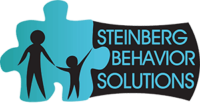A set of parents are wide-eyed and look nervous as they sit across from you in your office. They’ve just received the medical diagnosis that their child has Autism. Their doctor has advised them to come and speak with you about starting ABA therapy as soon as possible. Though all the information you’re providing to them is new, for you, the situation is familiar. As an experienced ABA therapist, you understand that your responsibility is to answer the parent’s questions and minimize their concerns. But most importantly, your job is to help their child learn the skills and behaviors necessary to navigate their new world. For this to happen, there are a few steps that must be taken to ensure that their experience with ABA therapy is a positive and effective one.
Early Intervention for Children with Autism
Simply put, the earlier the better. To reap the benefits of ABA therapy, parents should begin ABA therapy for their child as soon as they’ve received the official diagnosis of Autism. Research supports this fact. Due to neuroplasticity, the brain of a young child is at its greatest malleability at this stage. The earlier a therapist can start working with their young client, the greater rate of success. Though the results can vary greatly from one child to the next depending on their challenges, research has demonstrated that all children receive benefits from early intervention.
Parent Involvement with Children with Autism
It’s a group effort with regard to implementing an effective ABA treatment plan. That means therapists, supervisors, and parents, must be in agreement regarding the child’s treatment plan. In particular, the parents and caregivers will require the necessary training to ensure the skills being taught in ABA therapy are being reinforced and generalized at home. An effective treatment plan means that all parties involved implement the goals and “work” with the child. It is not the sole responsibility of the therapist to guarantee the child learns their new skills and coping techniques. The critical component of long term success is generalization across people and settings. This means that the child needs to learn to do the skills/behavior with ALL people in ALL places. From the beginning, the therapist must communicate to the family that he/she will work hard, the parents will work hard, and so will their child. All of them have a part to play. Additionally, the BCBA wants and encourages the family’s feedback this will be extremely helpful as the therapy team works through their child’s treatment plan.
ABA Therapist Integrity and Professionalism
Direct therapists should be appropriately trained to implement effective ABA practices during each session. A lack of proper training could result in not knowing how to implement programs correctly or handle difficult situations such as challenging behavior. Finally, therapists should be taking accurate data. This data should be reviewed by the BCBA at the weekly supervision meetings and used to measure the child’s progress and make the needed adjustments to his or her treatment plan.
A Final Thought
ABA is an important part of a child’s learning process and therefore should be treated as such. The BCBA may have developed an extremely detailed and elaborate treatment plan, but if it’s not implemented properly it could hinder a child’s progress. With early intervention, highly trained and professional direct therapists, frequent and proper BCBA supervision, and consistent generalization by parents and caregivers, the child will thrive and develop beyond expectations.
